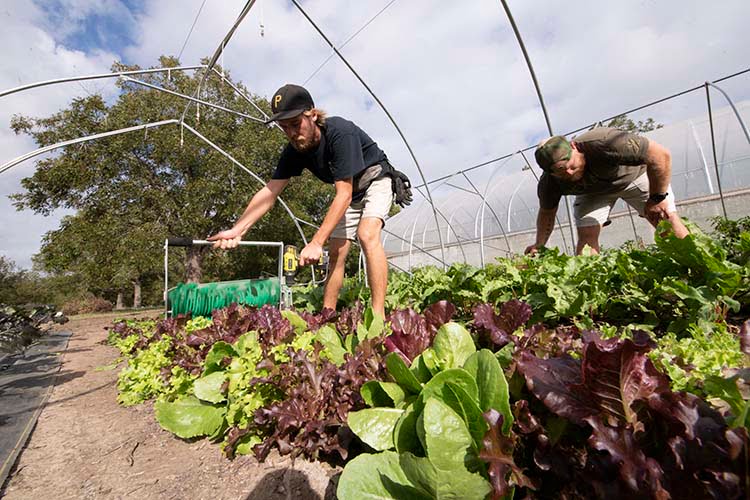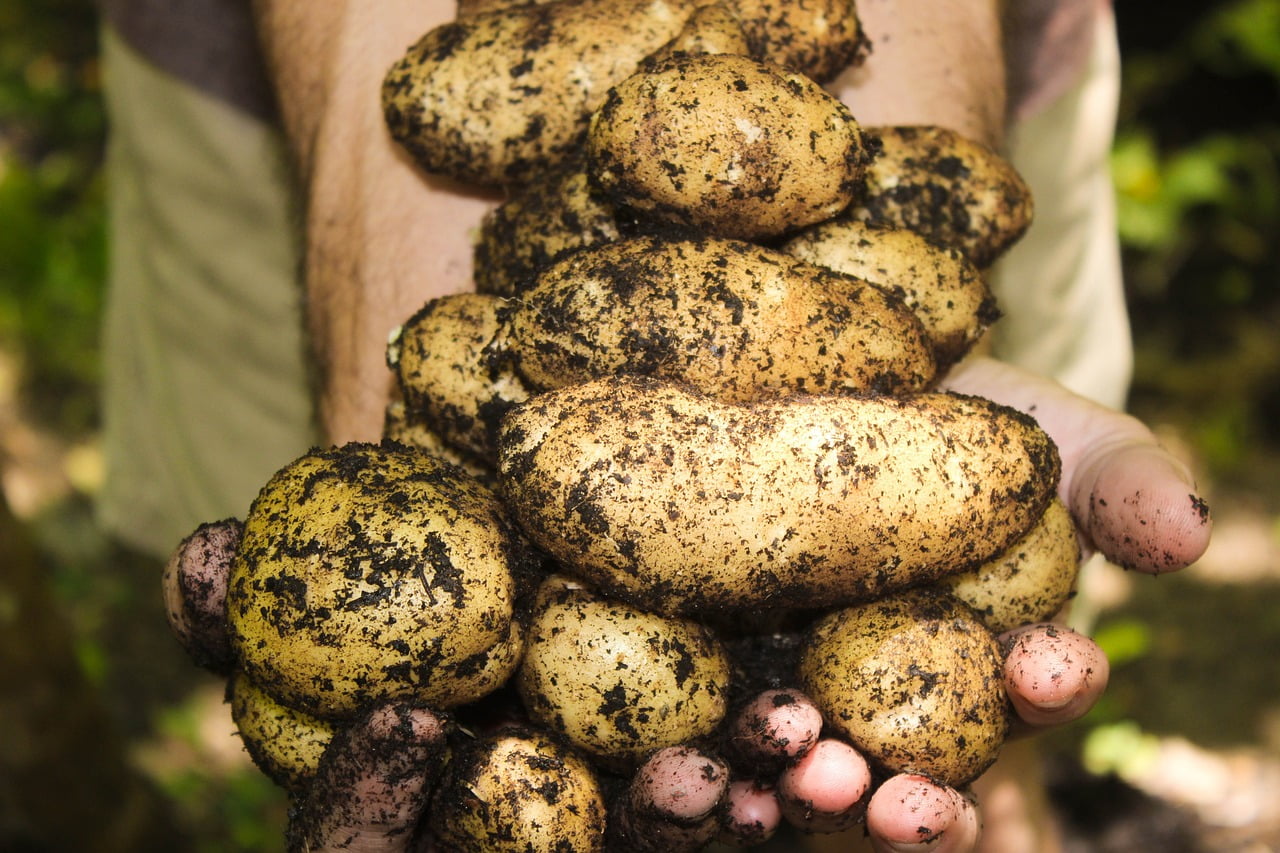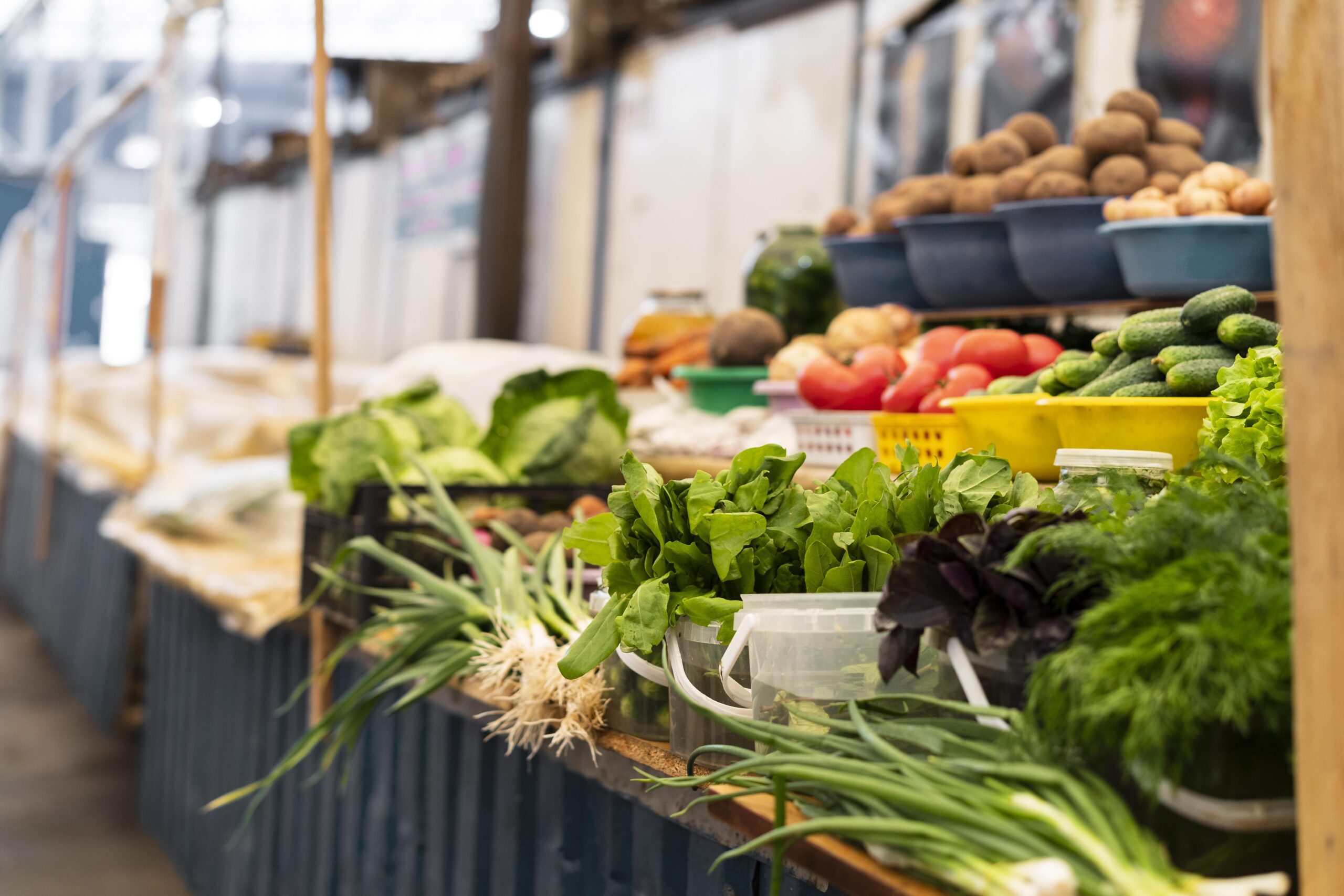Urban farming near me has emerged as a game-changer for communities around the world. In simple terms, urban farming refers to the practice of growing food, herbs, or plants in urban areas, typically in limited spaces like rooftops, vacant lots, or even indoors. This innovative approach to agriculture has gained popularity in recent years due to several reasons.
With urbanization and limited access to fresh and nutritious food in many urban areas, urban farming near me offers a sustainable solution to address these challenges. It promotes self-sufficiency, community engagement, and environmental sustainability.
In this article, we will delve into the 5 powerful benefits of engaging in urban farming near you. Discover how urban farming near me can transform communities, enhance food security, and pave the way for a greener future.

Table of Contents
Urban Farming Near Me: Exploring the 5 Powerful Benefits of Engaging in Urban Farming
Fostering Community Cohesion

Urban farming plays a crucial role in fostering community cohesion by creating a shared purpose and bringing people together in a meaningful way. Here’s an expanded explanation of how urban farming specifically promotes community cohesion:
1.1 Creating Gathering Spaces:
Urban farming near me serves as more than just places for growing food; they become vibrant gathering spaces within communities. These green oases in the midst of concrete jungles provide a unique opportunity for people from all walks of life to come together, connect, and engage in shared activities. Whether it’s participating in planting workshops, harvest festivals, or farmers’ markets, urban farms become focal points for community interaction. People gather to exchange knowledge, share stories, and learn from one another, strengthening social bonds and fostering a sense of belonging.
To actively engage and participate in these gathering spaces, you can:
- Research local urban farming initiatives, community gardens, or urban farms in your area to find opportunities for engagement.
- Attend workshops, training sessions, or educational events related to urban farming and sustainable agriculture.
- Join local gardening clubs, organizations, or online communities to connect with like-minded individuals and stay updated on events and activities.
- Volunteer time and skills at urban farms or community gardens.
- Participate in community markets, food exchanges, or social events organized by urban farming spaces.
- Share your own gardening experiences, tips, and ideas with others to foster knowledge exchange and community building. By actively participating in these gathering spaces and events in urban farming near me you can immerse yourself in the vibrant urban farming community, expand your knowledge, and contribute to the sense of community and interaction within these spaces.
1.2 Promoting Social Equity:
Urban farming near you has the power to bridge socioeconomic gaps and promote social equity within communities. By creating accessible and inclusive spaces, individuals from diverse backgrounds can actively participate in farming activities. Regardless of age, race, or income, everyone can contribute and benefit from the abundance of fresh produce. Urban farming becomes a means of leveling the playing field, where people from different socio-economic backgrounds come together, work side by side, and share in the rewards of their collective efforts. This shared experience fosters empathy, understanding, and cooperation, enhancing community cohesion and social equity.
1.3 Encouraging Collaborative Efforts:
Engaging in urban farming near me encourages collaborative efforts and teamwork. Urban farms often rely on the participation and contribution of community members to maintain and nurture the space. Neighbors become more than just passersby; they become active partners in sustainable development. Through joint efforts, individuals build strong connections and enhance community ties. By working together, sharing knowledge, and supporting one another, urban farming cultivates a sense of camaraderie and collective responsibility, further strengthening community cohesion.
1.4 Empowering Local Leadership:
Urban farming provides opportunities for individuals to take on leadership roles and actively contribute to their community’s growth. As urban farms become community-led initiatives, individuals step forward as organizers, educators, and advocates for sustainable practices. This empowerment of local leadership creates a sense of ownership and pride within the community. By working together towards a common goal, urban farming near me empowers individuals to make a positive impact, fostering community cohesion and a shared sense of achievement.
Enhancing Food Security

Urban farming near me directly addresses common challenges to food security in urban areas. These challenges include limited access to fresh produce, dependence on long-distance transportation, and disruptions in supply chains. By promoting local production of fresh fruits, vegetables, and herbs, urban farming ensures a steady supply of nutritious food. It reduces the need for long-distance transportation, resulting in fresher produce and lower carbon emissions. Community gardens and allotment programs empower individuals to grow their own food, while the nutritional benefits of locally grown produce contribute to healthier diets. This is how urban farming enhances food security in urban areas and improves the well-being of communities:
2.1 Empowering Individuals and Families
Urban farming empowers individuals and families to take control of their food sources. By growing their own produce, they gain a deeper understanding of the food system and develop sustainable practices. This hands-on experience fosters a sense of self-reliance, promotes healthier eating habits, and instills a greater appreciation for the environment. Empowering individuals and families to start their own urban farming projects is crucial for promoting sustainable food production. Here are some practical tips and step-by-step guides to help you get started:
- Start Small: Begin with a small-scale project that suits your available space and resources. You can start by growing herbs, salad greens, or vegetables in containers, raised beds, or vertical gardens.
- Access To Sunlight and Water Availability: Ensure that your chosen space receives an adequate amount of sunlight for plant growth. Additionally, consider the availability of water sources and access to irrigation systems or rainwater harvesting methods.
- Choose Suitable Crops: Select crops that thrive in your specific climate and growing conditions. Research which plants are well-suited for urban farming, such as tomatoes, peppers, leafy greens, and herbs. Consider the space requirements and growth habits of each plant.
- Prepare the Soil or Growing Medium: If you have access to outdoor space, prepare the soil by removing weeds, loosening it with a garden fork, and incorporating organic matter like compost. For indoor or container gardening, choose a suitable growing medium like potting soil or a soilless mix.
- Plan Watering and Fertilization: Develop a watering schedule based on the needs of your crops. Monitor the moisture level of the soil or growing medium and adjust watering accordingly. Use organic fertilizers or compost to nourish the plants and promote healthy growth.
- Practice Integrated Pest Management (IPM): Implement IPM techniques to manage pests and diseases. This includes regularly inspecting plants for signs of pests, using physical barriers like netting or row covers, and employing organic pest control methods when necessary.
- Join Local Gardening Clubs or Workshops: Engage with the urban farming community in your area by joining local gardening clubs or attending workshops. These gatherings provide opportunities to learn from experienced gardeners, exchange knowledge, and receive guidance on urban farming techniques.
- Learn about Sustainable Practices: Explore sustainable farming practices such as companion planting, crop rotation, and organic pest control methods. These practices promote plant health, biodiversity, and environmental sustainability.
- Continuously Learn and Adapt: Urban farming is a continuous learning process. Stay updated with the latest techniques, attend educational events, and be open to adapting your practices based on feedback and experience.
Remember, urban farming projects can be scaled according to available space and resources. Starting small allows you to gain experience and gradually expand your project as you become more confident and knowledgeable. Embrace the accessibility and scalability of urban farming initiatives, and enjoy the rewarding experience of growing your own food in an urban setting.
2.2 Strengthening Resilience
Urban farming near me serves as a vital tool in building community resilience. In times of crisis or natural disasters, when traditional food supply chains may be disrupted, urban farms offer a resilient alternative. By diversifying food sources and increasing local production, communities become more self-sufficient and better equipped to withstand unforeseen challenges.
3. Promoting Environmental Sustainability

Engaging in urban farming near me is a powerful way to promote environmental sustainability. By transforming underutilized spaces into green havens, urban farms contribute to the reduction of urban heat islands, improve air quality, and promote biodiversity. Additionally, urban farmers often employ organic and regenerative farming practices, minimizing the use of harmful chemicals and preserving soil health. Urban farming plays a significant role in promoting environmental sustainability by offering various benefits. Here are some additional details on the environmental advantages of urban farming:
- Reducing Greenhouse Gas Emissions: Urban farming contributes to the reduction of greenhouse gas emissions in multiple ways. By producing food locally, the need for long-distance transportation is minimized, reducing carbon emissions associated with transportation. Additionally, urban farms often employ organic and regenerative farming practices that minimize the use of harmful chemicals and promote carbon sequestration in the soil.
- Managing Stormwater Runoff: In urban areas, excessive stormwater runoff can lead to flooding and water pollution. Urban farming helps mitigate this issue by absorbing and filtering rainwater. Green spaces created by urban farms act as natural sponges, reducing stormwater runoff and preventing water pollution by absorbing and filtering rainwater.
- Preserving Biodiversity: Urban farming near me contributes to the preservation of biodiversity in urban areas. By creating green spaces and providing habitat for various plant and animal species, urban farming enhances urban ecosystems. The diversity of plant species grown in urban farms also promotes pollinator populations, such as bees and butterflies, which play a crucial role in pollination and maintaining ecosystem balance.
- Mitigating Urban Heat Islands: Urban areas often experience the urban heat island effect, where concrete and asphalt surfaces absorb and radiate heat, leading to higher temperatures. Urban farms help mitigate this effect by creating green spaces with vegetation that provides shade and reduces surface temperatures. The presence of vegetation in urban farms also improves air quality by capturing dust and pollutants.
- Enhancing Soil Health: Urban farming near me practices focus on improving soil health through composting, organic fertilizers, and soil conservation techniques. By nurturing and enriching the soil, urban farms promote long-term fertility and sustainability. Healthy soils enhance water retention, nutrient absorption, and root development, leading to better crop yields and reduced environmental impact.
- Utilizing Food Waste: Urban farming contributes to waste management by utilizing organic waste as compost or fertilizer. Food scraps and other organic waste can be composted and used to enrich the soil, closing the nutrient cycle. This reduces the amount of waste sent to landfills and minimizes the production of greenhouse gases from decomposition.
These environmental benefits highlight the positive impact of urban farming near me on urban ecosystems, air quality, water management, and biodiversity conservation. By embracing urban farming practices, communities can actively participate in creating a more sustainable and resilient environment.
3.1 Mitigating Climate Change
Urban farming near me plays a crucial role in mitigating climate change by reducing carbon emissions. By producing food locally, the need for long-distance transportation is minimized, thus reducing the carbon footprint associated with food distribution. Furthermore, urban farms can implement innovative techniques such as vertical farming or aquaponics, which require less water and land compared to conventional farming methods.
3.2 Managing Urban Waste
Urban farming contributes to waste management by utilizing organic waste as compost or fertilizer. Through practices like composting food scraps and utilizing rainwater harvesting systems, urban farmers reduce waste sent to landfills while simultaneously nourishing the soil. This closed-loop approach creates a sustainable cycle that benefits both the environment and the community.
4. Improving Mental and Physical Well-being

Engaging in urban farming near me can significantly improve mental and physical well-being. By spending time in green spaces and connecting with nature, individuals experience reduced stress levels and increased feelings of relaxation. Gardening activities also provide opportunities for physical exercise, promoting a healthier lifestyle and contributing to overall well-being.
4.1 Therapeutic Benefits
Urban farming provides therapeutic benefits for individuals dealing with mental health issues such as anxiety, stress, depression, social isolation, ADHD, and PTSD. Engaging in gardening activities and connecting with nature can alleviate these conditions. Urban farming offers a sense of purpose, accomplishment, and community engagement. By joining local gardening clubs, attending workshops, and participating in shared gardening activities, individuals can access these benefits. Urban farming near me provides a safe and therapeutic environment, promoting relaxation, stability, and improved well-being. It is recommended to incorporate urban farming into therapy or self-care routines and seek guidance from horticultural therapy professionals if needed
4.2 Accessible Exercise
Engaging in urban farming provides opportunities for accessible exercise that benefits physical health across different age groups and abilities. Activities such as planting, harvesting, soil work, and building structures offer low-impact workouts, strengthening muscles and improving coordination. Safety precautions, proper lifting techniques, and breaks are important to prevent injuries. Encouraging children and seniors to participate in age-appropriate tasks promotes inclusivity. Staying hydrated, wearing protective clothing, and consulting healthcare professionals when necessary ensure a safe and enjoyable experience. Prioritizing physical well-being enhances the overall benefits of urban farming.
5. Economic Opportunities

Engaging in urban farming near you presents economic opportunities that can boost local economies and create employment. As urban farms thrive, they often generate surplus produce, which can be sold locally through farmers’ markets or community-supported agriculture (CSA) programs. This localized economy encourages entrepreneurship, fosters job creation, and helps communities become more economically resilient.
5.1 Entrepreneurship and Innovation
Urban farming has become a platform for entrepreneurship and innovation. By introducing creative solutions like vertical farming, hydroponics, or rooftop gardens, individuals can create unique business models centered around sustainable agriculture. These initiatives not only generate income but also inspire others to explore new avenues within the urban farming industry.
5.2 Education and Skill Development
Urban farming near you offers educational opportunities that empower individuals with valuable skills. From learning about plant biology and organic farming techniques to understanding market trends and consumer preferences, urban farming provides a practical and hands-on learning environment. These acquired skills can be utilized in future careers within the agriculture sector or even in starting one’s own farming business.
FAQs:
Q: How can I get involved in urban farming near me?
A: Getting involved in urban farming near me is easier than you might think. Start by researching local urban farming initiatives or community gardens in your area. Reach out to organizations, attend workshops, or volunteer your time to gain hands-on experience. You can also start small by growing herbs or vegetables in containers on your balcony or windowsill.
Q: Is urban farming only for people with agricultural backgrounds?
A: Not at all! Urban farming is accessible to people from all backgrounds and skill levels. You don’t need prior agricultural experience to get started. Many resources, workshops, and online tutorials are available to guide beginners through the process. Urban farming is a learning journey that anyone can embark on.
Q: Can urban farming really make a difference in my community?
A: Absolutely! Urban farming has the power to make a significant impact in communities. By addressing food security, promoting sustainability, and fostering community engagement, urban farming contributes to the overall well-being and resilience of communities. Every small effort counts and can lead to positive change.
Q: Are there any financial benefits to urban farming?
A: Yes, urban farming can have financial benefits. As urban farms flourish, surplus produce can be sold locally, creating economic opportunities. Additionally, by growing your own food, you can save money on groceries and reduce your reliance on store-bought produce.
Q: What are some examples of urban farming techniques?
A: Urban farming encompasses various techniques, including container gardening, rooftop gardens, vertical farming, aquaponics, and hydroponics. These innovative approaches maximize space utilization and optimize resource efficiency, making urban farming a viable solution for communities with limited land availability.
Conclusion:
Urban farming near me offers a multitude of powerful benefits that can transform communities. By fostering community cohesion, urban farming brings people together and strengthens bonds. It enhances food security by providing access to fresh and nutritious produce, reducing reliance on long-distance transportation, and minimizing the carbon footprint. Urban farming promotes environmental sustainability through practices like reducing urban heat islands, improving air quality, and managing waste. It also improves mental and physical well-being, providing therapeutic benefits and accessible exercise. Additionally, urban farming creates economic opportunities, stimulating local economies and encouraging entrepreneurship.
To get involved in urban farming near me, take actionable steps today. Research local urban farming initiatives, community gardens, or workshops in your area. Join gardening clubs, attend community workshops, or volunteer your time to gain hands-on experience. Start small by growing herbs or vegetables in containers on your balcony or windowsill. Embrace the power of urban farming and become an agent of positive change in your community.
